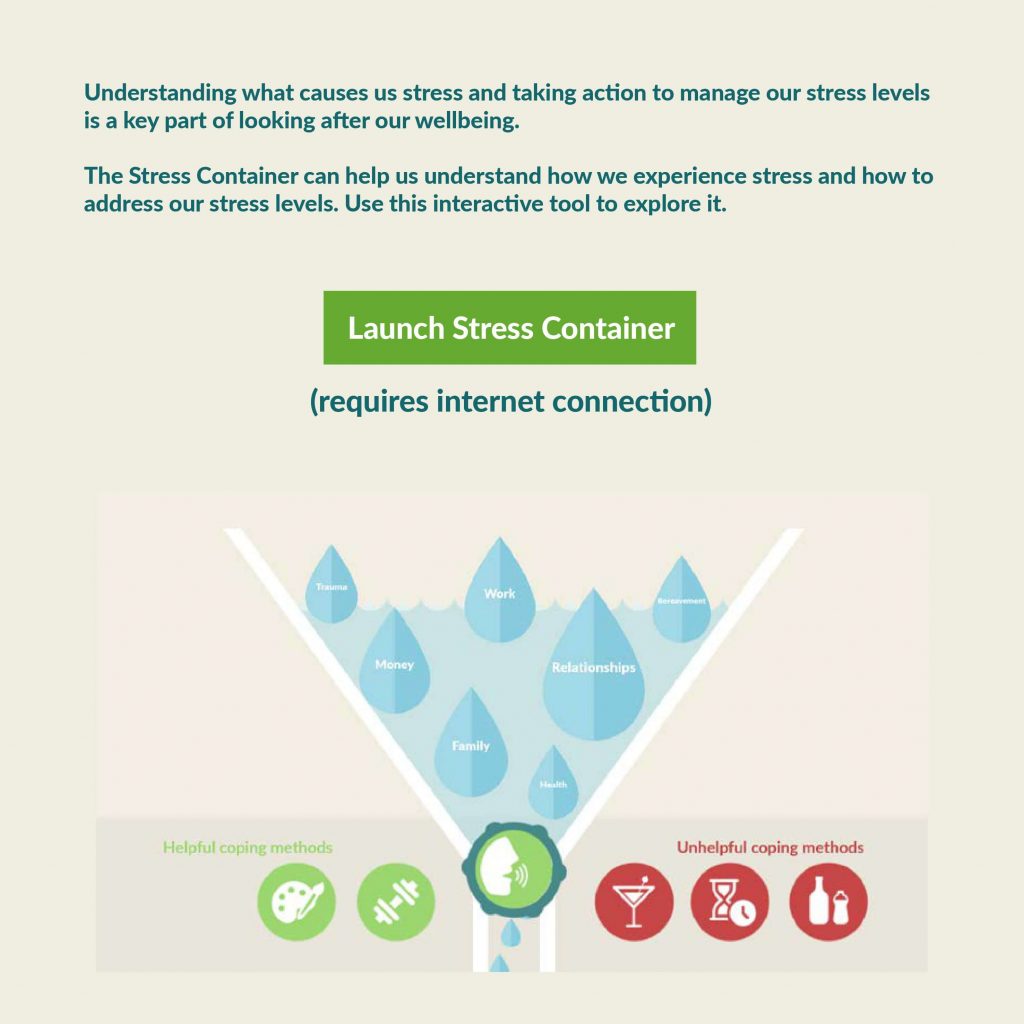At some point in our lives, we have all felt the effects of stress; it is an unavoidable part of life. Whilst we are all familiar with what it feels like, we may struggle to accurately define what we mean when we say stress.
Stress is the sensation of being under an abnormal amount of pressure. This pressure might come from a variety of sources in your daily life: increased workload, transitional moments, family feuds, or new / existing financial concerns are just a few examples. It often has a cumulative effect, with each stressor piling up on top of the others.
You may feel threatened or upset in certain situations, and your body may react with a stress response. This can result in several physical symptoms, as well as changes in your behaviour and more intense emotions.
Stress affects us in many ways, both physically and mentally, with varying degrees of severity. Not everyone will experience stress the same way, and what may be considered stressful for one person, may not for another. Here are 6 ways we recommend managing stress:
1. Stay Active
Exercise won’t make your stress go away, but it can help you cope with your emotions by clearing your thoughts and letting you deal with your problems more calmly.
You do not have to engage in intense physical exercise if you are not feeling up to it, even just going out and getting some fresh air, or taking some light physical exercise, like going for a walk to the shops can really help. Of course, going to the gym, running, swimming and any other forms of exercise are also great!
2. Take a Break
We often work very long hours, which means we don’t always spend enough time doing activities we enjoy. Set aside a couple of nights a week for some quality “me time” away from work, whether it’s for socialising, relaxation, or fitness.
3. Talk About It
A good support network of colleagues, friends and family can ease your work troubles and help you see things in a different way. Connecting with people will ensure you have support to turn to when you need help.
The activities we do with friends help us relax. We often have a good laugh with them, which is an excellent stress reliever.
Talking things through with someone will help rationalise and understand your feelings, and often can help you find solutions to your problems.
4. Understand Your Triggers
Take time to understand what is causing you stress, and why you feel like you can’t manage it. Perhaps it is poor time-management, lack of self-confidence, other mental health illnesses, or simply that you are not equipped with the practical skills and knowledge to overcome your situation. Understanding what is triggering your stress often, in itself, helps alleviate it.
Sort the possible reasons for your stress into three categories: 1) those with a practical solution 2) those that will get better given time and 3) those you can’t do anything about. Try to release the worry of those in the second and third groups and let them go.
Sometimes we can find it hard to understand our emotions and what is causing them. By taking part in this Understanding Emotional Intelligence course, you can gain the skills and knowledge you need to understand yourself fully, and cope with your emotions in a positive manner.
5. Take Control
Every problem has a solution. Your stress will worsen if you remain passive, thinking, “I can’t do anything about my problem.” One of the main reasons for stress and a lack of wellbeing is a sense of loss of control.
Taking control is empowering in and of itself, and it is a vital component of finding a solution that satisfies you rather than someone else. Setting yourself goals and challenges, whether at work or outside, such as learning a new language or a new sport, can help build confidence. Having confidence in your own capabilities can often help you deal with stress when it arises.
Don’t rely on alcohol, cigarettes, or caffeine to help you cope. These quick releases will not fix your difficulties in the long run, instead, they’ll form new ones. It’s the equivalent of burying your head in the sand. It may bring temporary respite, but it will not solve the problems. You must address the source of your stress.
Through taking online classes specifically designed to help you to manage stress, you can learn to manage and prevent stress, as well as how to support others who are struggling with stress. Shawmind offer an Understanding Stress self-learning course, that will provide you with the knowledge and skills to manage your personal stress and help others with theirs.
6. Be Positive and Kind to Yourself
Try to look for the positives in life and things to be thankful for, work on seeing the glass half full rather than half empty.
At the end of each day, write down three things that went well or that you are grateful for. This is a great way to reflect on your day, highlighting and focussing on the good parts.
Want to learn more about managing stress?
Our CPD Accredited Understanding Stress course teaches the learner what stress is, how it can be managed and prevented, and how you can support someone who is struggling with stress.
For more information on stress, download our stress guide.
At Shawmind, we want to make it easier for you to handle moments of poor mental health by reducing stigma and increasing awareness and support options. Help us do this for the next generation by supporting Headucation – our mission to train teachers in the basics of mental health support.






Post a comment